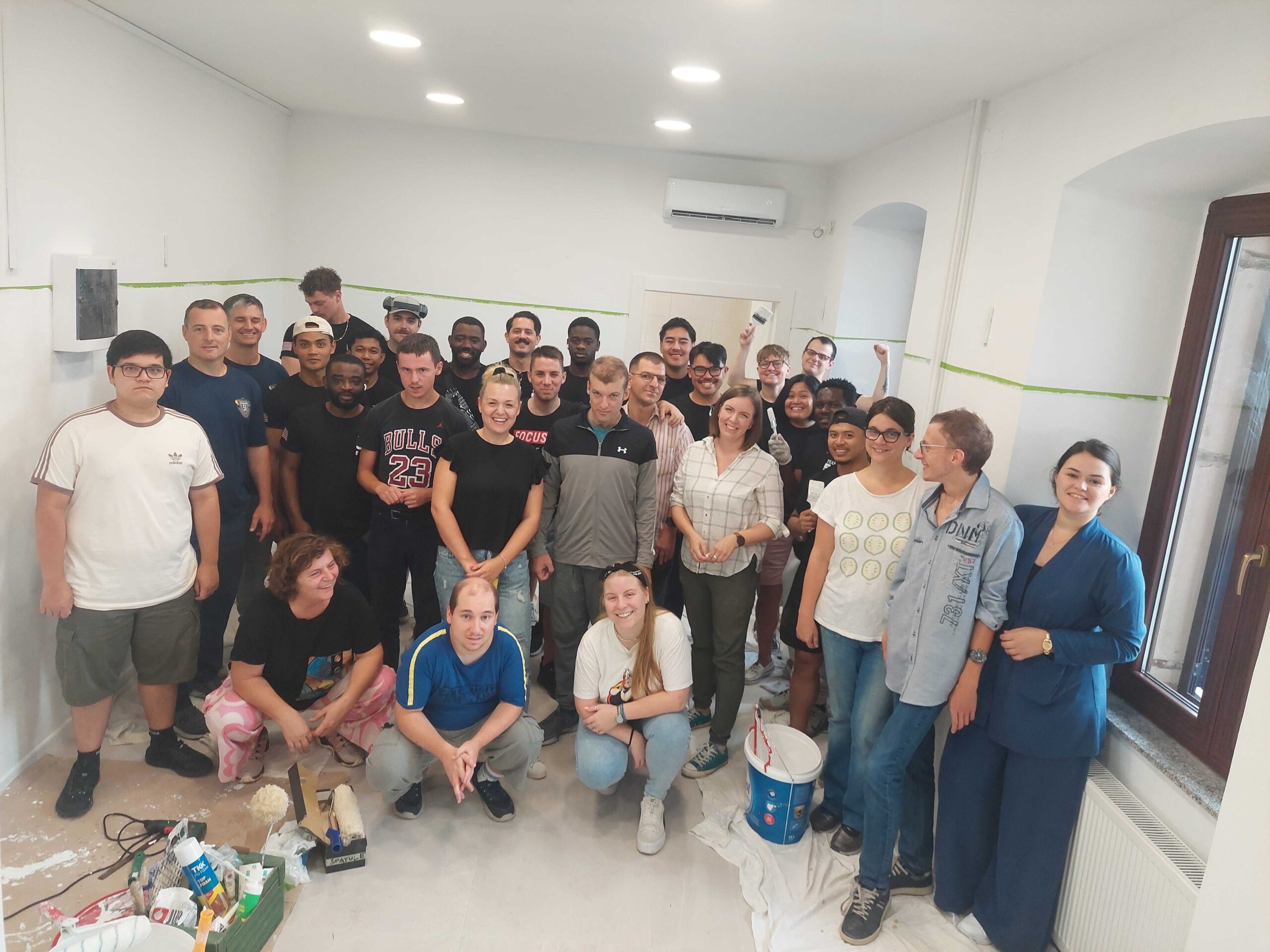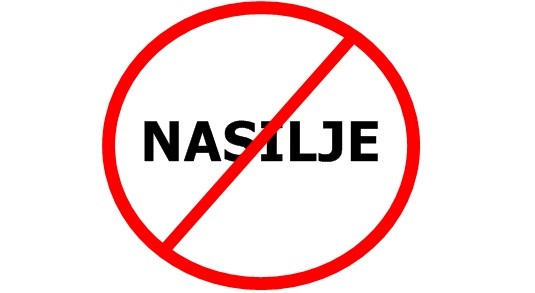On Friday, June 9th, 2023, we participated in a panel discussion, one of 144 public forums, with different social topics and problems, which has been organized by the Cultural Front from Opatija for the past 10 years.
The topic is current, but also challenging – “Prevention of violence using legal mechanisms.” The panelists were Prof. Ph.D.Sc. Dalida Rittossa (Faculty of Law in Rijeka), Dalibor Vidović, Univ. special crime and Sandra Juranović, B.Sc. iur. (County Court in Rijeka).
An extremely important goal of the DIP’s activities is the prevention of violence and/or the reporting (prosecution) of violence, if we witness or suspect violent behavior. Violence is not only physical, but also psychological, sexual or financial. Persons with disabilities often face violence, in the family or at school; sexual violence, financial and other forms of violence. Therefore, we pay special attention in our daily work to empowering persons with disabilities, with whom we work on the skills necessary to defend themselves against violence, empowering them to protect themselves from the violent behavior of people in their environment.
Violence has always existed and we will never achieve a perfect balance in which our society will not have violent individuals. But if we do not prevent violent behavior and if it becomes socially desirable behavior, we will live in a destructive society. Violence happens everywhere and to everyone. That is why it is important to continuously raise awareness among citizens, children and young people, among all the vulnerable groups, experts who work with people – that violent behavior is not socially accepted. Due to the challenging times in which we live, there is a lack of appropriate and healthy reaction of the community to violence – it often seems to us that citizens are either “numb” to violence or that they are afraid that their integrity will be threatened if they stand up against it. All of us are, therefore, even more exposed to violence.
At the panel discussion, citizens were introduced to the mechanisms by which our law prevents the repetition and spread of violent behavior. For us, violence prevention is our joint investment in creating a healthy and non-violent community, at school, family or at work. Legal mechanisms only come in when it is impossible to protect people from violence. We, the community, are the best protection against violent behavior, so do everything you can and don’t give up supporting the victims, by spreading and advocating non-violent norms of behavior.
How the law defines violence:
The Law on Protection from Domestic Violence OG 70/17, 126/19, 84/21, 114/22 in (Article 10) defines that domestic violence is:
- application of physical force that did not result in physical injury
- corporeal punishment or other forms of humiliating treatment of children
- psychological violence that caused a violation of the victim’s dignity or caused distress to the victim
- sexual harassment
- economic violence as prohibition or impossibility of using joint or personal property, disposal of personal income or property acquired through personal work or inheritance, impossibility of employment, denial of funds for maintaining a joint household and for childcare
- neglecting the needs of a person with a disability or an elderly person, which leads to his/her distress or violates his/her dignity and thus causes him/her physical or mental suffering.
Criminal Code, consolidated text of the law, Official Gazette 125/11, 144/12, 56/15, 61/15, 101/17, 118/18, 126/19, 84/21, 114/22, effective from January 1st, 2023.
Criminal acts and sanctions are such behaviors that violate or threaten personal freedoms and other rights and values of a person, for which protection cannot be ensured, except by means of criminal sanctions. (Article 1 of the Criminal Code).
According to Article 20 of the Criminal Code, a criminal offense can be committed by doing or not doing. Therefore, it is important for citizens to be familiar with the rights and sanctions for a criminal act done by acting or failing to act. As the criminologist D. Vidović pointed out in the panel discussion, punishments are imposed in order to have a purpose, and the purpose is to provoke condemnation, strengthen trust and influence the perpetrator and others not to repeat the crime (Article 41 of the Criminal Code). In the same way, whoever helps another in a criminal act is also guilty. (Article 38). Penalties can be in the form of fines, imprisonment or long-term imprisonment.
Also, in order to prevent repetition of acts and other behaviors, security measures are imposed. Article 65: The types of security measures are mandatory psychiatric treatment, mandatory drug addiction treatment, mandatory psychosocial treatment, prohibition of performing a certain duty or activity, prohibition of driving a motor vehicle, prohibition of approaching, removal from the joint household, prohibition of Internet access and protective supervision upon full execution of prison terms…
Article 179a of the Criminal Code defines the criminal offense “Domestic violence” and prescribes:
Anyone who seriously violates the regulations on protection against domestic violence and thus causes fear for family members or a close person for their safety or the safety of people close to them or puts them in a humiliating position or a state of long-term suffering, and a more serious crime has not been committed, will be punished with a prison sentence of one to three years.
The Criminal Code additionally prescribes the protection of close persons from violence, so as qualifying forms of criminal offenses punishable actions to the detriment of a close person in criminal offenses are prescribed: murder (Art. 110), aggravated murder (Art. 111), killing (Art. 112 .), mutilation of female genital organs (Art. 116, paragraph 3), bodily injury (Art. 117, paragraph 2), serious bodily injury (Art. 118, paragraph 2), particularly serious bodily injury (Art. 119 . para. 2), serious bodily injury resulting in death (Art. 120), serious bodily injury due to negligence (Art. 121), coercion (Art. 138, para. 2), threat (Art. 139, para. 4), intrusive behavior (Art. 140, paragraph 2), sexual intercourse without consent (Art. 152), rape (Art. 153), and sexual harassment (Art. 156).
Some forms of violence are sanctioned with a misdemeanor sanction.
The explicit problem of prosecuting violence against persons with disabilities is that it most often occurs in the family, so due to their dependence on the family, it often remains hidden within the family.
Since persons with disabilities are (too) often deprived of their capacity for employment, and they have a guardian, who is usually a family member, often everything that happens is kept between them. We often talk about the problem of abuse of guardianship as an institution/instrument of protection. For persons with disabilities, especially those with intellectual disabilities and/or mental difficulties, who are completely dependent on a caregiver, violence is often hidden and remains within the confines of the home.
Manipulation, psychological and financial violence is so pronounced, but imperceptible, until persons with disabilities are included in the community. Then we can hear about all the ways in which they suffer. And then we do everything to prevent it, to create protective mechanisms for them. That is why it is extremely important for persons with disabilities to be included in the community, especially in the society of violence in which we all live, in which violence is still the norm for which there is apparently no awareness of its illegality.
We are appalled by the physical violence suffered by persons with disabilities, without them receiving any substantial protection. We investigate and evaluate every case of suspicion of violence, and those for which we determine that there is a justified suspicion of violence, we report to the authorities, if we do not obtain the cooperation of parents and guardians. Without the cooperation and rehabilitation of the whole family, there is no hope of protecting persons with disabilities. It is the duty of every professional and person who works with other people, but also the duty of every citizen, to report violence. (Article 7 of the Act on Domestic Violence). In this way, all of us together send a message to the abuser that we condemn such behavior, and that he/she will face legal sanctions upon committing it.
Article 117. (1) Whoever physically injures another or harms the health of another, shall be punished by imprisonment for up to one year.; (2) Whoever commits the act referred to in paragraph 1 out of hatred towards a family member or towards a person who is particularly vulnerable due to their age, serious physical or mental disability, disability or pregnancy, or as an official in the performance of their duties or public authority, shall be sentenced to imprisonment up to three years. (3) The criminal offense referred to in paragraph 1 shall be prosecuted by private action.
Photos taken from: https://www.facebook.com/opatijacoffeehousedebate, on June 12th, 2023
















